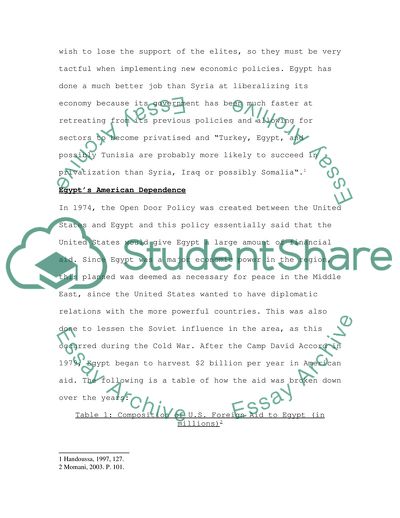Cite this document
(The Economic Liberalization Movements in Egypt and Syria Term Paper, n.d.)
The Economic Liberalization Movements in Egypt and Syria Term Paper. https://studentshare.org/macro-microeconomics/1706304-discuss-the-view-that-the-process-of-economic-liberalization-visible-in-much-of-the-middle-east-during-the-past-twenty-years-represents-a-retreat-of-the-state
The Economic Liberalization Movements in Egypt and Syria Term Paper. https://studentshare.org/macro-microeconomics/1706304-discuss-the-view-that-the-process-of-economic-liberalization-visible-in-much-of-the-middle-east-during-the-past-twenty-years-represents-a-retreat-of-the-state
(The Economic Liberalization Movements in Egypt and Syria Term Paper)
The Economic Liberalization Movements in Egypt and Syria Term Paper. https://studentshare.org/macro-microeconomics/1706304-discuss-the-view-that-the-process-of-economic-liberalization-visible-in-much-of-the-middle-east-during-the-past-twenty-years-represents-a-retreat-of-the-state.
The Economic Liberalization Movements in Egypt and Syria Term Paper. https://studentshare.org/macro-microeconomics/1706304-discuss-the-view-that-the-process-of-economic-liberalization-visible-in-much-of-the-middle-east-during-the-past-twenty-years-represents-a-retreat-of-the-state.
“The Economic Liberalization Movements in Egypt and Syria Term Paper”. https://studentshare.org/macro-microeconomics/1706304-discuss-the-view-that-the-process-of-economic-liberalization-visible-in-much-of-the-middle-east-during-the-past-twenty-years-represents-a-retreat-of-the-state.


